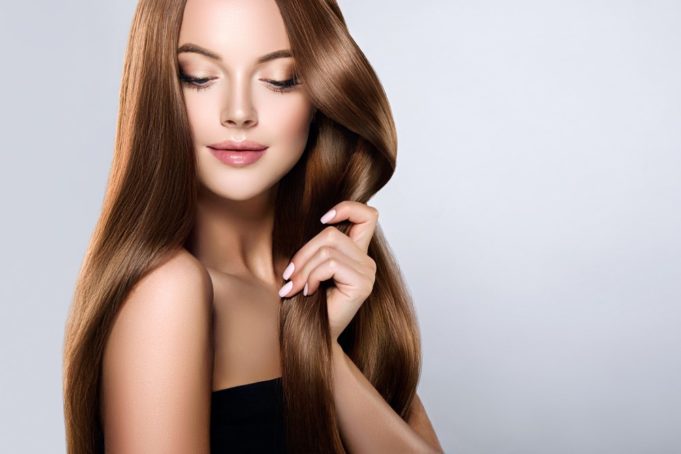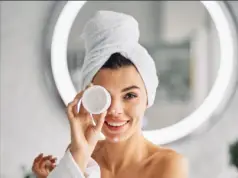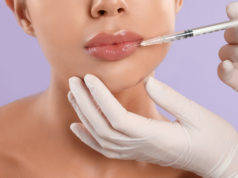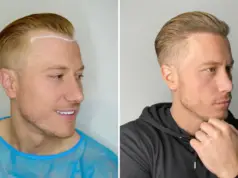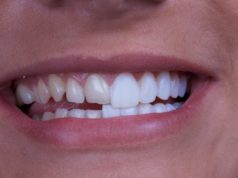While genetics play a big part in how your hair looks, your diet, the weather, pollution, and your overall approach to hair care are all critical to maintaining your crowning glory. Find out how a healthy diet and proper care can keep your mane a head above the rest.
1. Well-balanced Diet
What you eat plays a huge role in the quality of your hair, iIn fact, consuming a diet lacking the right nutrients can lead to hair loss. However, eating a balanced diet with the right nutrients can help promote hair growth, especially if you’re experiencing hair loss due to poor nutrition.
A diet rich in iron, zinc, Omega-3 fatty acids and protein will help stimulate your hair follicles for growth. Alternating between lean red meat, chicken and fish during the week will optimise hair health.
2. How Often Should I Wash My Hair?
There are differing opinions on how often you should wash your hair. Some believe that as long as women are using quality products, they can benefit from more frequent washing. This is because some believe it reduces split ends, provides great moisture and gives the hair an overall clean and shiny look.
It may be a good idea to wash daily if you live in a city with pollution or humidity, or work out daily. Washing every few days if you live in a rural environment away from pollutants, or live in an especially dry climate may be effective. If your hair is normal or combination, with dry ends and oily roots, a compromise is to wash every other day.
Others believe that ashing more than once a day can cause your glands to overreact and produce more oil to make up for the extra shampooing.. It’s paradoxical, but people who wash their hair a lot to get rid of excess oil may be contributing to drying out their scalp and that, in turn, produces more oil, creating a cycle that’s difficult to break.
How often you wash your hair can also depend on how fine or thick your hair is. Generally speaking, thin and fine hair types tend to get greasy quite quickly and should be washed more regularly, up to three times a week.
3. What is the Right Shampoo For My Hair Type?
Oily hair
Oily hair can be difficult to manage. It can be tempting to pick up the strongest shampoo you can find to eliminate excess grease. However, strong shampoos can actually do more harm than good when it comes to oily hair because they strip away all the natural sebum oils that protect your scalp. This, in turn, forces the sebaceous glands in your skin to go into overdrive, creating excess grease and leaving your hair looking oily.
If you have greasy hair, stick with gentle, clarifying shampoos that use ingredients like mint or lipacid to regulate the natural oils on your scalp.
Avoid shampoos that are designed to moisturise, hydrate or smooth hair, as these products often contain a lot of heavy conditioning agents that can build up in your hair and make it greasy.
Fine or Thin Hair
If you have fine or thin hair, you’ve probably tried shampoos that promise to volumize your hair. Unfortunately, some “volumizing” shampoos actually have ingredients that leave residue in your hair, which can weigh down your strands and make them look flat. If your top priority is extra volume, you’ll need to focus on the products that use advanced polymer technology to give your hair extra structure, and push your strands apart.
Dry Hair
Dry hair often means a dry scalp, which needs lots of moisturising ingredients.
This means you’ll want to avoid anything that’s designed to volumize, strengthen or fortify your hair because these products generally strip oil and moisture from your hair. You’ll also want to avoid shampoos that contain sulfates like SLS or SLES because these intense detergents are known to be very drying.
Instead, look for shampoos with phrases, such as “hydrating” or “moisturising” in the label. Shampoos formulated with a combination of natural ingredients, such as aloe vera, avocado or coconut oil will help to keep your scalp nice and moist. Some moisturising shampoos also contain complexes that are designed to fight frizz.
Coloured Hair
Coloured hair needs a gentle touch. Heavy handling with super-intense surfactants will damage the cuticle layer that locks pigment inside each strand of hair, and stops your colour from fading. Strong shampoos will compound any damage done during the colouring process which will leave your hair looking dry and unmanageable.
Most of the major brands make special colour-protect shampoos that are designed to gently cleanse your hair without damaging its delicate, protective coating. The very best colour protect shampoos also contain super-advanced vitamins that are designed to add an extra layer of protection to lock in your colour and keep it looking great for longer.
4. Get a Good Haircut
You might be tempted to skip seasonal trims when growing out your hair, but to add healthy length, you actually need to do just the opposite. A haircut every six to eight weeks is important to prevent split ends from forming as the hair cuticle splits.
And once your hair splits, there’s no way to repair it, so it’s important to keep it trimmed to prevent breakage before it starts.
5. Should I avoid Heat Styling?
Heat styling tools, such as curling tongs, hairdryers, and flat irons can leave our hair looking more stylish, but over time it can lead to serious damage, including dry hair, breakage, and split ends. Women with fine, or thin hair are more susceptible to heat damage.
Too much heat can damage the keratin proteins that give hair its strength, take moisture from the inside of the hair strand and crack the cuticle of the hair resulting in brittle, dry hair. High heat also can permanently damage the bonds of the hair strand, causing curly strands to lose their natural bounce.
To avoid that problem, use a heat protector, don’t use irons or tongs on damp hair and use your lowest temperature as possible with blow dryers.
Are there any hair transplant solutions for women?
Following these top tips might help you have the hair you desire, however, according to experts, 2% to 5% of women suffered hair loss due to mechanical or traction alopecia. Those women may be candidates for hair transplant surgery and Enhance Hair Restoration which provides an unrivalled service at clinics across the UK.
At Enhance Hair Restoration, they provide innovative hair transplants for women with leading doctors and offer services that focus on the particular needs of women. Women get the kind of hair transplanting services they need to get back confidence in their hair

